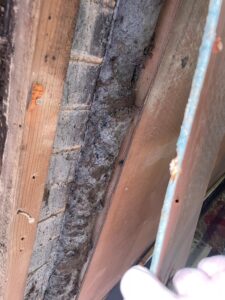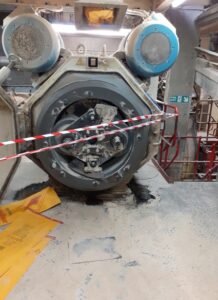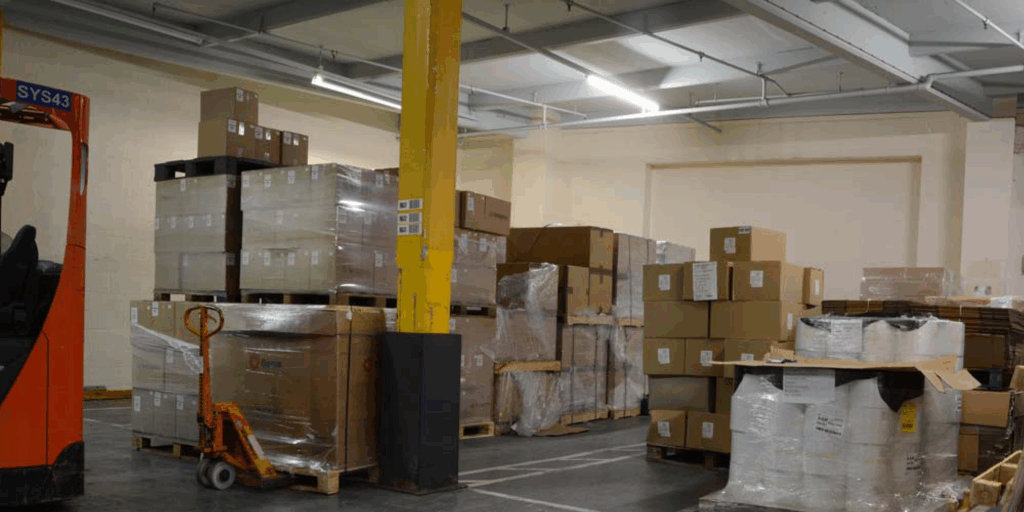Film studio fined £6,000 after disturbance of asbestos during maintenance works
- Employees exposed to asbestos risk during dismantling of wall panelling.
- Asbestos had not been identified in previous surveys of the studio buildings.
- HSE investigation found failures in assessment, training and emergency arrangements.
A film studio in Hertfordshire has been fined £6,000 after poor management of minor building works led to the disturbance of asbestos – putting employees at risk of exposure to asbestos fibres.
Maintenance staff at Elstree Film Studios in Borehamwood had been asked to remove acoustic wall panelling from one of the studio buildings in preparation for the replacement of the studio doors by an external contractor.
Employees were told that no asbestos was present and began dismantling the panels using claw hammers and crowbars on 22 July 2022.
Shortly after starting work, one employee identified a layer of insulation that he believed to be asbestos and immediately stopped. Subsequent testing confirmed the presence of asbestos – Amosite/Chrysotile and Crocidolite – which required licensed removal.

An investigation by the Health and Safety Executive found that neither the studio’s asbestos management surveys nor the specific refurbishment surveys had considered the wall surfaces within stages 7, 8, and 9.
As a result, the acoustic wall panelling dismantled by employees fell outside the scope of any assessment. The investigation also identified failings in training and inadequate emergency arrangements to deal with asbestos disturbance.
HSE guidance states that employers must not undertake work liable to expose people to asbestos unless a suitable assessment has been carried out and a proper plan is in place. This often includes the use of licensed contractors with appropriate controls to manage the risks.
Elstree Film Studios Limited, of Civic Offices, Elstree Way, Borehamwood, Hertfordshire, pleaded guilty to breaching Regulations 5, 10 and 15 of the Control of Asbestos Regulations 2012. The company was fined £6,000 and ordered to pay £6,790 in costs and a £2,000 victim surcharge at Stevenage Magistrates’ Court on 20 November 2025. All sums are to be paid within seven days.
HSE Inspector Stephen Manley said:
“Poor management of asbestos can lead to workers being exposed to the harmful effects of asbestos. Those in control of buildings must ensure they have a suitable assessment in place, and those undertaking intrusive work should be provided with appropriate information – which, for this type of work, will often require a specific localised survey by a competent person.”
The prosecution was brought by HSE Enforcement Lawyer Gemma Zakrzewski and Paralegal Officer Helen Hugo.
Further information:
- The Health and Safety Executive (HSE) is Britain’s national regulator for workplace health and safety. We are dedicated to protecting people and places, and helping everyone lead safer and healthier lives.
- More information about the legislation referred to in this case is available.
- Further details on the latest HSE news releases is available.
- Relevant guidance can be found at Asbestos – HSE
- HSE does not pass sentences, set guidelines or collect any fines imposed. Relevant sentencing guidelines must be followed unless the court is satisfied that it would be contrary to the interests of justice to do so. The sentencing guidelines for health and safety offences can be found here.


